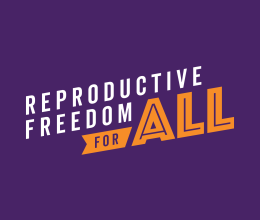In last week’s Senate Judiciary Committee meeting, tempers flared as anti-choice organizations voiced their support a controversial bill.
Senator Kuipers’ Senate Bill 1283 would add language to the state’s Public Health Code, essentially asking medical providers to use their most technologically advanced ultrasound machines for abortion procedures.
Specifically, there was expressed outrage that organizations not supporting the bill did not meet the supporting organizations’ verbal presence in live testimony. At the height of this apparent disappointment, one senator took the written testimony submitted by the ACLU of Michigan, crumbled it to the size of a baseball, and threw it across the table. As I sat there observing, I wondered, “was this an indication of frustration or was this merely a stunt to provoke those that did not wish to speak?”
Sometimes silence can be so loud.
The issue is not that organizations not supporting the bill simply did not speak up because they had nothing to say. The issue, rather, is why.
In essence, both sides of abortion debates both have the same goal—saving lives. The heart of the matter, however, is lost in the details including bills such as Senator Kuipers’.
What needs to be understood is that saving lives starts before a woman comes to the crossroads of considering terminating her pregnancy. Saving lives starts with access to resources and education. Saving lives really begins with reducing unplanned pregnancies.
Putting resources into preventing unplanned pregnancies could not only reduce the number of abortions, but planned pregnancies can decrease infant mortality and teenage pregnancies.
Comprehensive sex education plays a role by offering the best and most responsible information for teens to make informed decisions when it comes to sexual activity. Comprehensive sex education probably does not encourage teenage sex no more than abstinence-only education has discouraged teen sex. If teens do decide to engage in sexual activity, it would be in their best interest and society’s best interest to prevent unwanted pregnancies as well as a number of other uninvited consequences like sexually transmitted infections (STI).
Resources should also be targeted towards state programs such as Plan First!, a Medicaid-waiver program, that helps increase access to low-income women for family planning services. These services include contraception, STI treatment, and other related medical care. This is especially important for women who are uninsured or under-insured due to unemployment or employers not offering medical benefits.
Programs targeted towards preventing unplanned pregnancy also help reduce infant mortality. By ensuring that women have healthy planned pregnancies, the rates of infant mortality are greatly reduced. This is an especially crucial public health issue here in Michigan where rates of infant mortality have begun to rise in the metro Detroit area in the past few years.
Bills such as Senator Kuipers’ do not truly address the serious issues of abortion and unplanned pregnancy in Michigan. Instead, statutory amendments like this just flare up continuing political debates focused on the wrong issues. Requiring abortion providers to use the “most technologically advanced ultrasound equipment available at that location” comes off as redundant and bypasses the crucial steps really needed to address abortion and unplanned pregnancies.
This week, the bill is making another appearance before the Senate Judiciary Committee for testimony. For the greater goal of reducing unplanned pregnancies, I hope our legislators really hear what is being said...from both supporters AND opposition.
By Celeste Davis, Legislative and Legal Intern



